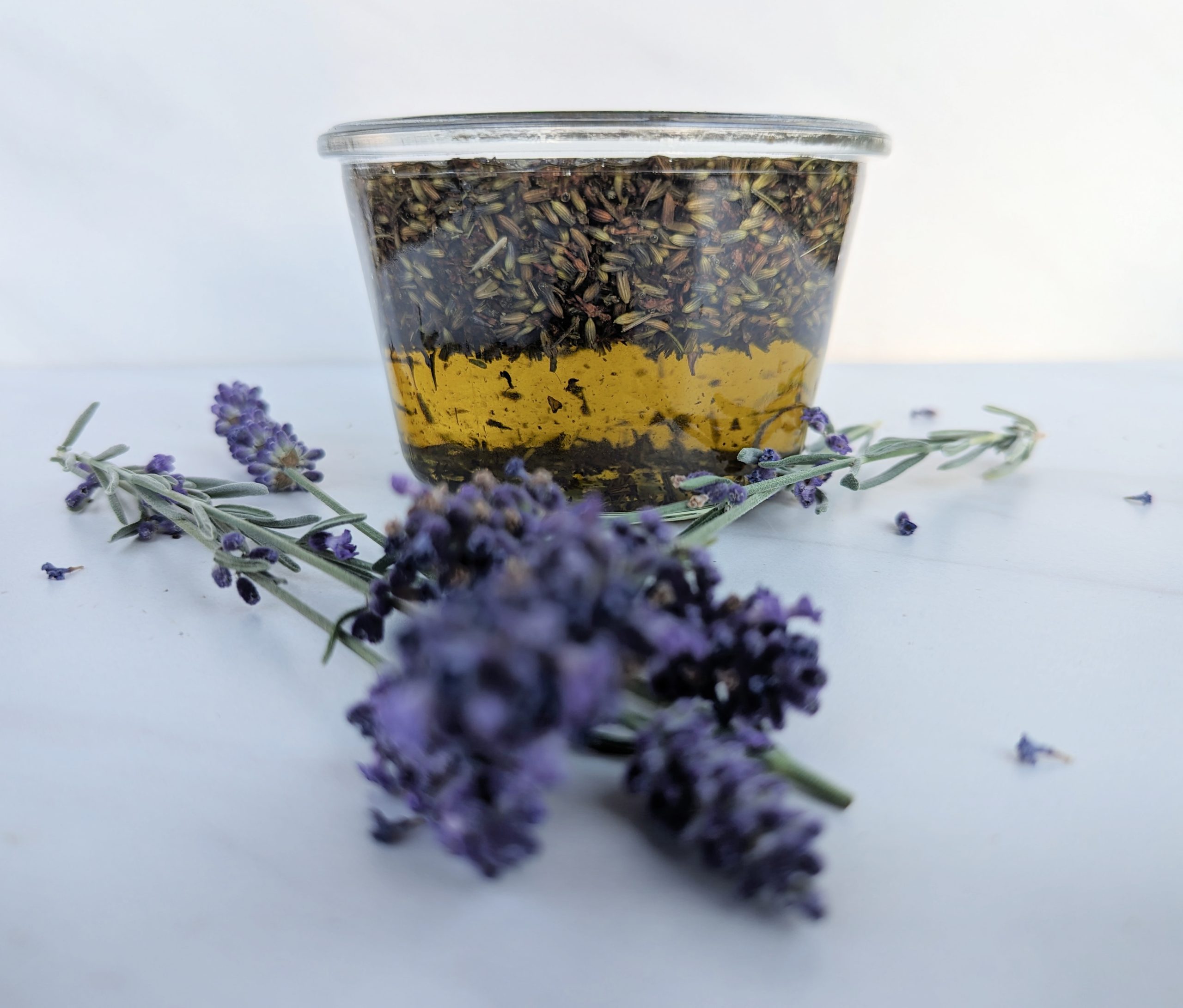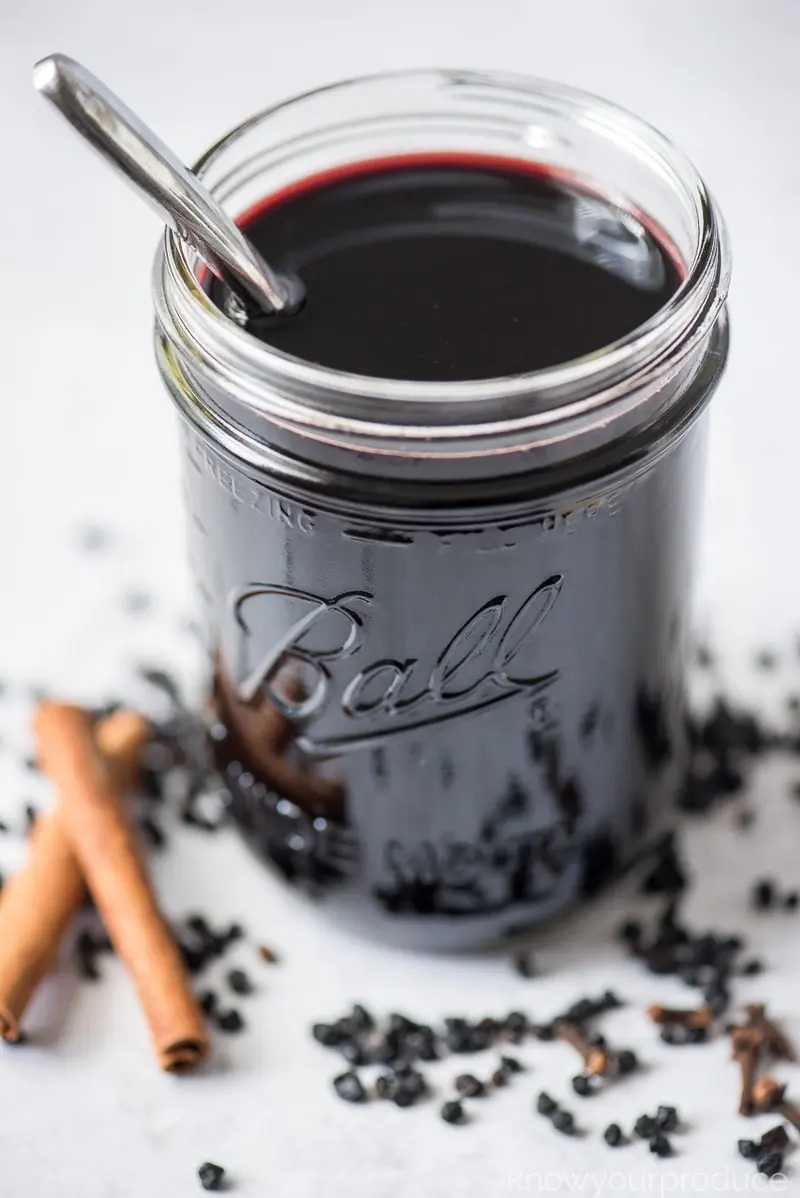The Best Home Remedy for Ear Infection: Tea Tree Oil
This blog post will explore how tea tree oil ear infection home remedy, known for its powerful antimicrobial and anti-inflammatory properties, can be used as a home remedy for ear infections.
As a registered nurse passionate about natural health and holistic care, I have seen firsthand the benefits of integrating natural remedies into conventional medical practices. One such remedy that has gained popularity for its effectiveness and safety is tea tree oil, particularly in treating ear infections. Ear infections are a common ailment that can cause significant discomfort, including ear pain, sore throat, and hearing loss. While conventional treatments are often effective, many people seek natural solutions to avoid the side effects of antibiotics and other medications.
Understanding Ear Infections
Ear infections are a common ailment, especially in children, and understanding their nature is crucial for effective treatment. Ear infections can affect different parts of the ear, leading to various types of infections, each with its unique characteristics and challenges.

Types of Ear Infections
There are three main types of ear infections, each affecting a different part of the ear.
Outer Ear Infections (Otitis Externa or Swimmer’s Ear)
These infections occur in the outer ear canal, the area between the eardrum and the outside of the ear. An ear infection, otitis external, is often caused by water that remains in the ear after swimming, creating a moist environment that encourages bacterial growth. This condition is commonly known as swimmer’s ear and can cause significant discomfort and itching.
Middle Ear Infections (Acute Otitis Media)
This is the most common type of ear infection, especially in children. It occurs when the area behind the eardrum (the middle ear) becomes inflamed and infected. Acute otitis media is usually caused by bacteria or viruses that reach the middle ear through the eustachian tubes, which connect the middle ear to the back of the throat. This type of infection often follows a cold or respiratory infection.
Inner Ear Infections
These infections are less common and involve the inner ear structures, which are responsible for balance and hearing. Inner ear infections can lead to severe symptoms, including vertigo (a spinning sensation), loss of balance, and hearing loss. These infections are typically viral in nature and can be more challenging to diagnose and treat.
Common Causes
Ear infections can be caused by a variety of pathogens, including bacteria, viruses, and fungi. Bacterial infections are a frequent cause, especially in middle ear infections, where bacteria such as Streptococcus pneumoniae and Haemophilus influenzae are common culprits. Viral infections often precede bacterial infections, setting the stage by causing initial inflammation and fluid buildup. Fungal infections, though less common, can affect the outer ear, particularly in warm and moist conditions.
Symptoms
The symptoms of ear infections can vary depending on the part of the ear that is affected but commonly include:
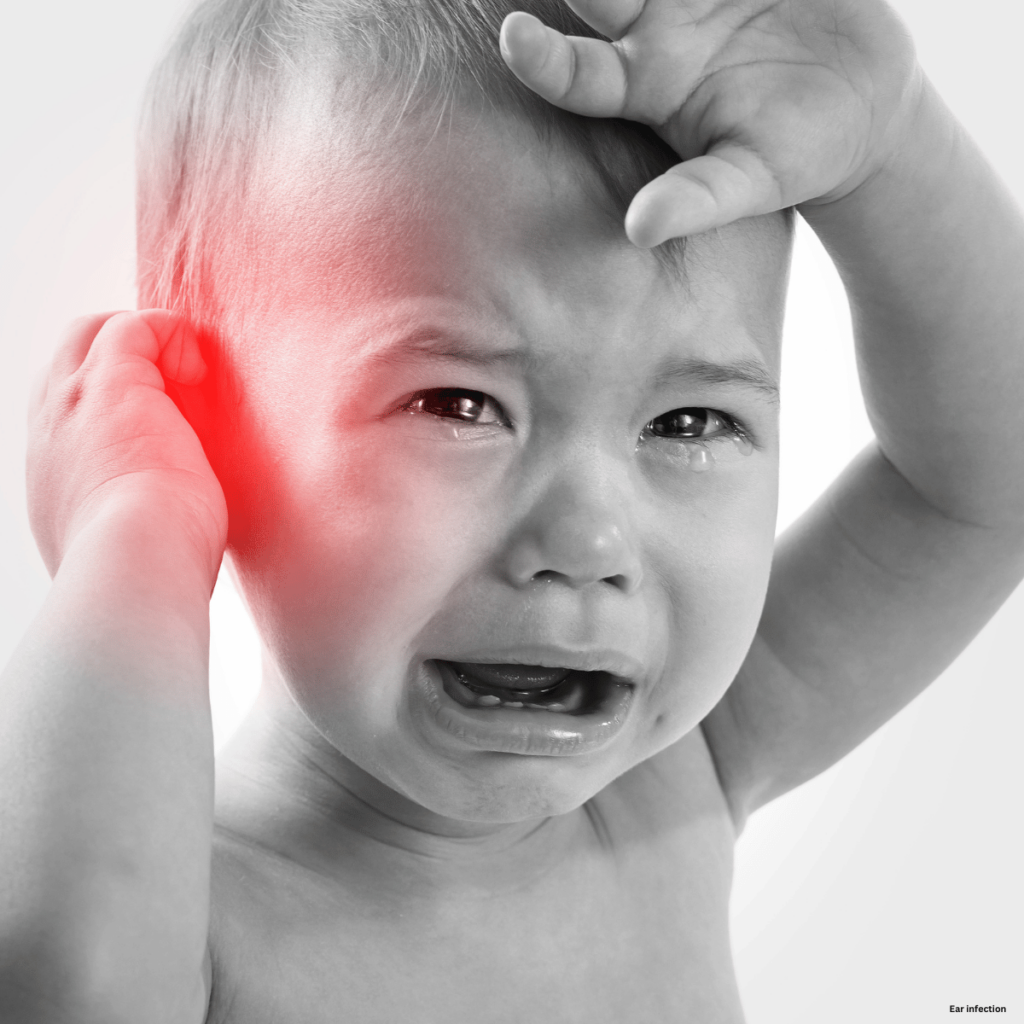
Ear Pain
This is the most prominent symptom of an ear infection. The pain can be sharp and severe or dull and aching.
Sore Throat
Infections that spread from the throat to the ears, especially in the case of middle ear infections, can cause a sore throat.
Loss of Balance
Inner ear infections, in particular, can disrupt the balance system, leading to dizziness and loss of balance.
Earaches
Persistent aching in the ear can indicate an ongoing infection.
Hearing Loss
Temporary hearing loss can occur due to fluid buildup in the middle ear or severe inflammation.
Other Symptoms
Fever, drainage of fluid from the ear, and a feeling of fullness in the ear are also common.
Benefits of Tea Tree Oil Ear Infection Home Remedy
Tea tree oil (Melaleuca) is renowned for its powerful medicinal properties, making it an effective natural remedy for various ailments, including ear infections. Derived from the leaves of the Melaleuca alternifolia plant, tea tree oil is packed with compounds that offer multiple health benefits.
Antimicrobial Properties
Tea tree oil is highly valued for its antimicrobial properties. It contains terpinen-4-ol, which helps combat a wide range of pathogens, including bacteria, viruses, and fungi. This makes it an excellent natural solution for preventing and treating infections. When used appropriately, tea tree oil can effectively reduce the presence of harmful microorganisms in the ear, providing relief from infection-related symptoms.
Anti-inflammatory Properties
Inflammation is a common response to infections, often causing pain and discomfort. Tea tree oil’s anti-inflammatory properties can help reduce swelling and alleviate pain associated with ear infections. By decreasing inflammation, tea tree oil not only provides symptom relief but also promotes faster healing.
Historical Use
Tea tree oil has a long history of use in traditional medicine. Indigenous Australians have used tea tree leaves for centuries to treat wounds and infections. Today, tea tree oil is widely recognized in naturopathic medicine for its versatility and efficacy in treating a variety of conditions, including ear infections.
Specific Benefits for Ear Infections
Tea tree oil is particularly effective in treating different types of ear infections. Its ability to disrupt the cell membranes of harmful bacteria and fungi makes it an ideal remedy for outer ear infections (otitis externa) and middle ear infections (acute otitis media). Additionally, its antiviral properties can help combat viral infections that affect the inner ear, although inner ear infections are typically less common and more complex to treat.
Boosting the Immune System
In addition to its direct antimicrobial effects, tea tree oil can enhance the body’s immune response. By boosting the immune system, tea tree oil helps the body naturally fight off infections more effectively. This holistic approach not only addresses the immediate symptoms of an ear infection but also supports overall immune health, reducing the likelihood of recurrent infections.
How to Use Tea Tree Oil Ear Infection Home Remedy
Tea tree oil (Melaleuca) is a versatile remedy known for its potent antimicrobial properties. It can be especially effective in treating ear infections due to its ability to combat bacteria, viruses, and fungi. Understanding how tea tree oil works can help you utilize this natural remedy effectively for ear infections.
Mechanism of Action
Tea tree oil works by disrupting the cell membranes of harmful microorganisms. The active compounds in tea tree oil, particularly terpinen-4-ol, penetrate the cell walls of bacteria, fungi, and viruses, leading to their destruction. This makes tea tree oil a powerful natural antibiotic and antifungal agent. When applied to the ear, it can help eliminate the pathogens causing the infection, thereby reducing inflammation and promoting healing.
Specific Benefits for Different Types of Ear Infections
Tea tree oil is effective against various types of ear infections. For outer ear infections, or otitis externa, tea tree oil can help eliminate the bacteria and fungi that thrive in the moist environment of the ear canal. It also helps reduce the inflammation and itching associated with swimmer’s ear. In cases of middle ear infections, or acute otitis media, tea tree oil can target the bacteria or viruses that have traveled through the eustachian tubes to the middle ear, reducing the pressure and pain caused by fluid buildup.
Enhancing the Immune System
Beyond its direct antimicrobial effects, tea tree oil can also boost the immune system. Its anti-inflammatory properties help reduce the body’s inflammatory response, which can often exacerbate symptoms. By supporting the immune system, tea tree oil helps the body more effectively combat the infection and prevent future occurrences. This holistic benefit makes tea tree oil a valuable part of a natural treatment regimen for ear infections.
Practical Application and Safety
To safely use tea tree oil for ear infections, it must be properly diluted with a carrier oil such as coconut oil, olive oil, or almond oil. Direct application of undiluted tea tree oil can cause irritation or an allergic reaction. A common method involves mixing equal parts of tea tree oil and a carrier oil. Once diluted, a few drops can be applied to the affected ear using a cotton ball or dropper. For added relief, a warm compress or heating pad can be applied to the ear to help soothe pain and enhance absorption.
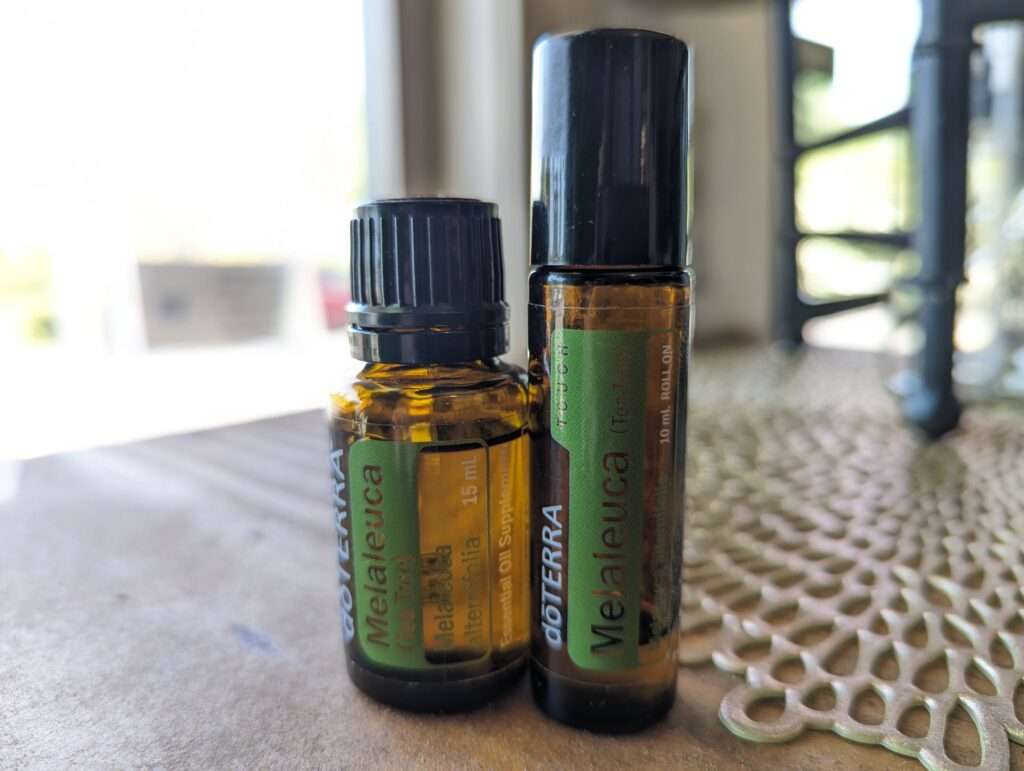
Using Tea Tree Oil Ear Infection Home Remedy Safely
While tea tree oil is a powerful natural remedy for ear infections, its potency requires careful handling to ensure safety and effectiveness. Here are important guidelines and considerations for using tea tree oil safely.
Proper Dilution
Tea tree oil should never be applied directly to the skin or ear without dilution. Undiluted tea tree oil can cause irritation, allergic reactions, or even damage to sensitive tissues. It is recommended to mix tea tree oil with a carrier oil such as coconut oil, olive oil, or almond oil. A safe ratio is to dilute tea tree oil to about 1-2% of the mixture, which equates to about 1-2 drops of tea tree oil per teaspoon of carrier oil.
Patch Testing
Before applying tea tree oil to the ear, conduct a patch test on a small area of skin, such as the inner arm. Apply a small amount of the diluted oil and wait for 24 hours to check for any adverse reactions like redness, itching, or swelling. If any reaction occurs, discontinue use immediately.
Application Method
Once diluted and tested, tea tree oil can be applied to the ear using a clean cotton ball or a dropper. Here’s a step-by-step method:
- Mix a few drops of tea tree oil with a carrier oil in equal parts.
- Dip a clean cotton ball into the mixture or use a dropper to collect a few drops.
- Gently apply the mixture to the outer ear or drop a small amount into the ear canal, being careful not to insert the cotton ball or dropper too deep.
- For additional relief, place a warm compress or heating pad over the ear to help soothe pain and facilitate absorption of the oil.
Avoiding Allergic Reactions
Even with proper dilution, some individuals may still experience allergic reactions. Symptoms of an allergic reaction can include redness, itching, swelling, or rash. If any of these symptoms occur, stop using tea tree oil immediately and wash the area with warm water. Seek medical advice if symptoms persist.
Save this post for later! Pin Below!
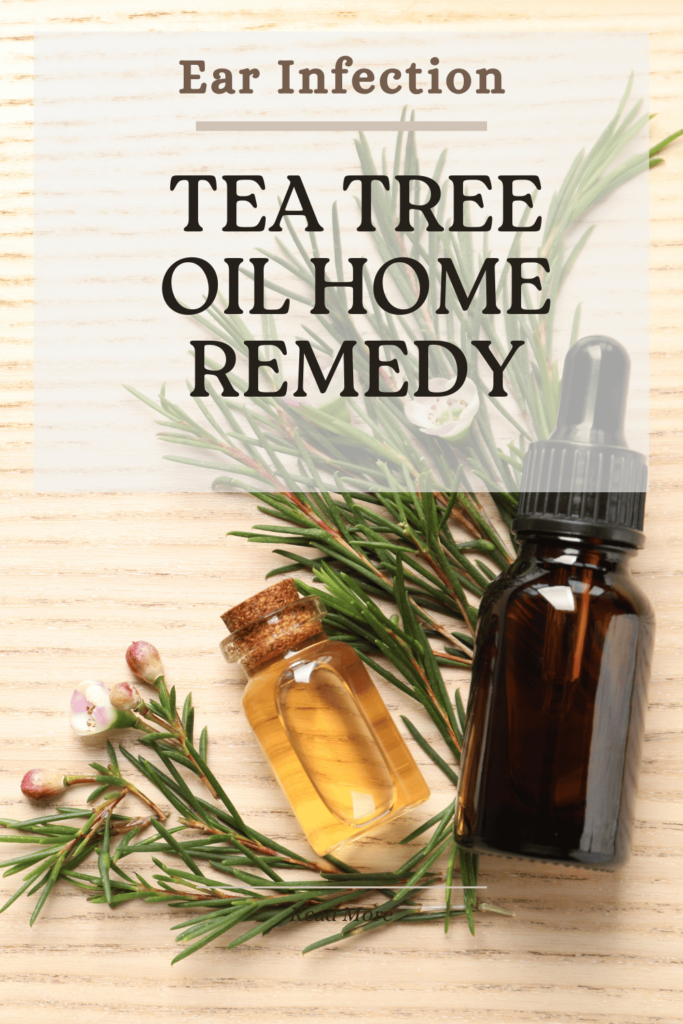
Using True Therapeutic Grade Essential Oils
When it comes to using essential oils for health purposes, the quality and purity of the oil are paramount. Not all essential oils are created equal, and the market is flooded with products that contain synthetic ingredients or are diluted with less effective oils. For treating ear infections, it’s crucial to use true therapeutic-grade essential oils to ensure safety and effectiveness.
Importance of Quality
True therapeutic-grade essential oils, such as those offered by companies like doTERRA and Plant Therapy, are rigorously tested to ensure they meet high standards of purity and potency. These oils are free from synthetic additives, contaminants, and fillers, making them a reliable choice for therapeutic use. Using high-quality essential oils ensures that you are getting the full spectrum of benefits from the plant’s natural compounds.
Lack of Regulation
Currently, there are no regulations governing the production and labeling of essential oils. This lack of oversight means that many products on the market may not be what they claim. Some oils are diluted with carrier oils or contain synthetic fragrances, which can reduce their effectiveness and increase the risk of adverse reactions. Choosing reputable brands that adhere to strict testing and quality control measures is essential for safe and effective use.
Recognizing Therapeutic Grade Oils
To identify true therapeutic-grade essential oils, look for companies that provide transparency about their sourcing, testing, and production processes. Reputable brands will often share information about their quality assurance methods, including:
- Sourcing: Information on where the plants are grown and how they are harvested.
- Testing: Details about the testing methods used to verify the purity and potency of the oils, such as Gas Chromatography-Mass Spectrometry (GC-MS) testing.
- Certifications: Any certifications that attest to the quality and purity of the oils, such as Certified Pure Therapeutic Grade (CPTG) or other industry-recognized standards.
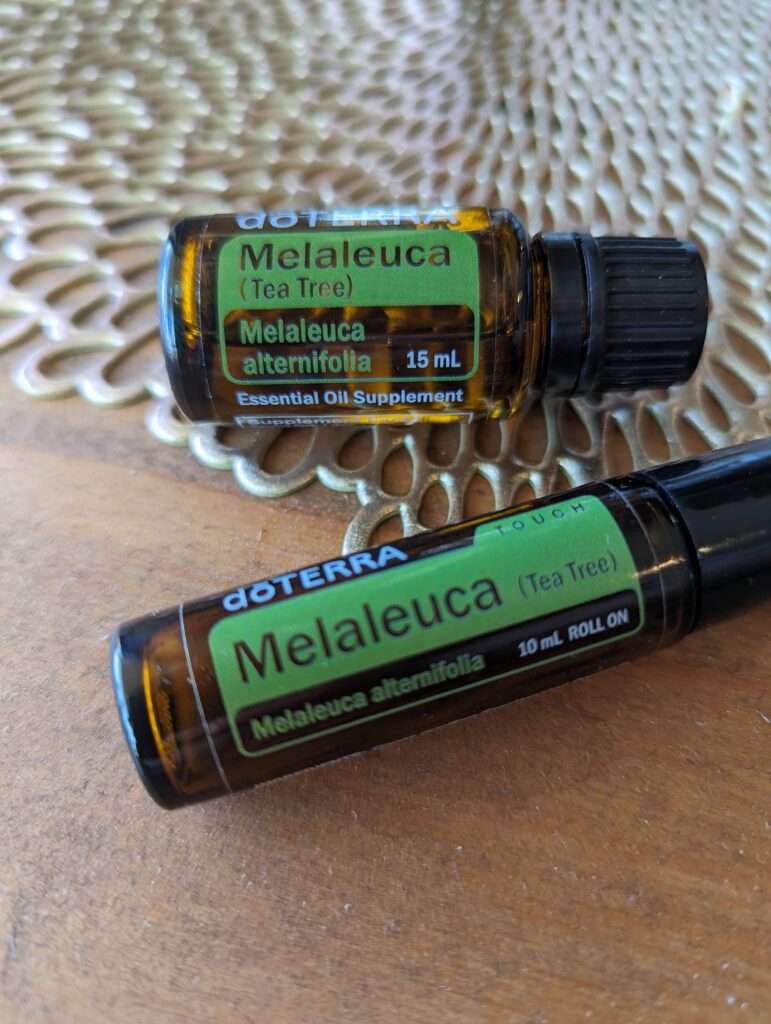
Trusted Brands
Some of the most trusted brands in the essential oil industry include doTERRA and Plant Therapy. These companies are known for their commitment to quality and transparency.
- doTERRA: Known for its rigorous testing protocols, doTERRA ensures that each batch of oil meets its high standards of purity and potency. Their oils are sourced from plants grown in their natural habitats, which contributes to their therapeutic effectiveness.
- Plant Therapy: This company provides detailed information about their sourcing and testing processes, offering GC-MS test reports for each batch of oil. Plant Therapy is committed to providing high-quality, affordable essential oils.
Consulting a Healthcare Provider
While tea tree oil can be an effective home remedy, it’s important to consult with a healthcare provider, especially for severe or recurrent ear infections. A healthcare provider can provide a proper diagnosis and ensure that using tea tree oil is appropriate for your condition. They can also advise on the correct dilution and application methods based on individual health needs.
Research and Evidence on Tea Tree Oil Ear Infection Home Remedy
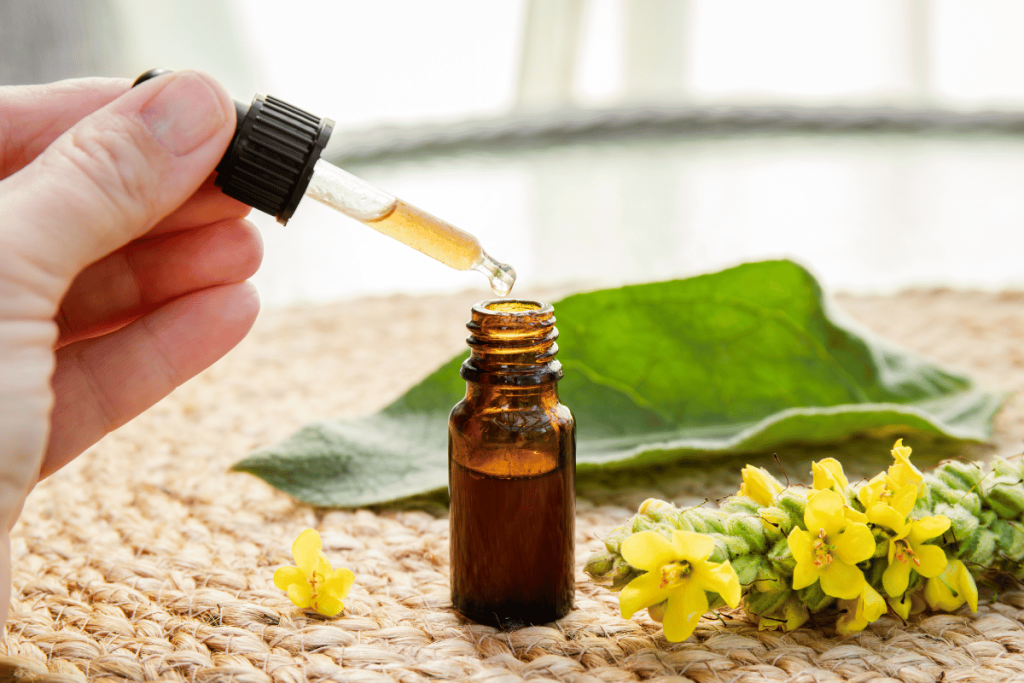
Understanding the scientific research and evidence supporting the use of essential oils, such as those from reputable brands like doTERRA or Plant Therapy, for treating ear infections can provide valuable insights into their efficacy and safety.
Essential oils have been studied for their antimicrobial, anti-inflammatory, and analgesic properties, all of which are relevant in the context of ear infections. Studies have focused on oils such as tea tree oil, lavender oil, and eucalyptus oil, among others, due to their potential to combat microbial pathogens and reduce inflammation.
Antimicrobial Properties
Essential oils like tea tree oil have shown significant antimicrobial activity against a wide range of bacteria, viruses, and fungi. This is particularly relevant for treating infections that affect the ear canal or middle ear, where pathogens may thrive in a moist environment.
Anti-inflammatory Effects
Inflammation is a common symptom of ear infections, contributing to pain and discomfort. Essential oils such as lavender oil have demonstrated anti-inflammatory effects that can help alleviate these symptoms by reducing swelling and easing pressure in the ear.
Analgesic Benefits
Some essential oils possess analgesic properties, which can provide relief from ear pain associated with infections. Oils like peppermint or clove oil may help to numb pain receptors and promote comfort while the infection heals.
While there is promising preliminary evidence suggesting the benefits of essential oils for managing ear infections, it’s important to note that more robust clinical trials are needed to establish definitive conclusions. Many existing studies are small-scale or conducted in laboratory settings, warranting further research to validate their efficacy in real-world clinical scenarios.
Integration with Conventional Treatment
Essential oils should not replace conventional medical treatments prescribed by healthcare providers for ear infections, especially in severe or recurrent cases. Instead, they can complement these treatments by providing additional symptom relief and supporting overall ear health.
Safety and Dilution
Proper dilution of essential oils is crucial to prevent skin irritation or adverse reactions, especially when applying them near sensitive areas like the ears. Consulting with a healthcare provider or qualified aromatherapist can ensure that you use essential oils safely and effectively.
When to Seek Medical Attention for Ear Infections
However it is important to recognize the appropriate time to seek medical attention for ear infections is crucial to ensure proper diagnosis, treatment, and prevention of complications. While natural remedies like essential oils from reputable brands such as doTERRA or Plant Therapy can provide relief for mild cases, certain situations necessitate professional medical care.

Recognizing Severe Symptoms
Persistent or worsening symptoms indicate the need for medical evaluation and intervention:
Persistent or Recurrent Ear Infections: If you or your child experiences frequent ear infections, especially more than three within six months, it may indicate an underlying issue that requires medical attention. Chronic ear infections that do not resolve with home remedies should also be evaluated by a healthcare provider.
Significant Hearing Loss: Any noticeable decrease in hearing associated with an ear infection requires prompt medical evaluation. Hearing loss can be a sign of severe infection or complications that need medical management.
Limits of Home Remedies
While natural remedies can be effective in alleviating symptoms, they have limitations and should not replace medical treatment when necessary:
Antibiotic Treatment: Bacterial ear infections often require antibiotics prescribed by a healthcare provider to clear the infection effectively and prevent recurrence or complications.
Medical Intervention: In cases where symptoms persist despite using home remedies or there are signs of worsening infection, medical intervention such as ear drainage or other procedures may be necessary.
Consulting Healthcare Providers
It’s essential to seek medical advice from a healthcare provider for persistent or severe ear problems:
Professional Evaluation: A healthcare provider can assess the severity of symptoms, conduct necessary tests, and determine the appropriate course of treatment based on the specific diagnosis.
Preventing Complications: Timely medical intervention helps prevent complications such as chronic infections, perforation of the eardrum, or spread of infection to nearby tissues.

The Best Temp for Herbal Tea: Guide for Optimal Brewing
Sharing is caring! Facebook Pinterest X The Best Temp for Herbal Tea: Guide for Optimal Brewing What is the Best Temp for Herbal Tea? What You’ll Learn in This Guide The best temp for herbal tea is key to unlocking the full flavors and health benefits of your brew. In this guide, tea lovers will…

How to Make a Quick Fire Cider Recipe for the Cold and Flu
How to Make a Quick Fire Cider Recipe for the Cold and Flu Quick Fire Cider Recipe for Cold and Flu When the cold season sets in, it’s the perfect time to boost your immune system with a natural remedy. A quick fire cider recipe is a traditional folk remedy packed with immune-boosting and anti-inflammatory…
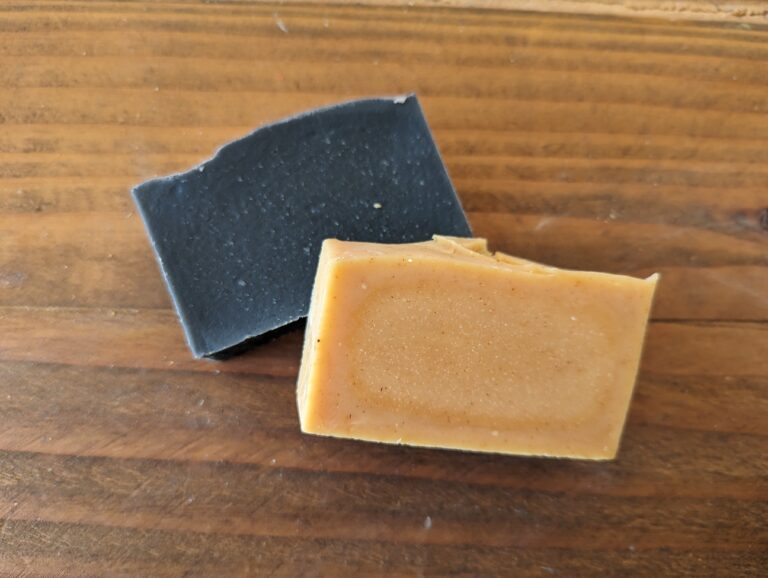
Benefits of Homemade Soap: Reasons for Natural and Handmade
Benefits of Homemade Soap: Reasons for Natural and Handmade Introduction to the Benefits of Homemade Soap The benefits of homemade soap are gaining attention as people prioritize natural products in personal care routines. Unlike commercial soaps, homemade soap offers natural, skin-friendly alternatives made with high-quality ingredients. It’s a better choice for health-conscious individuals. This article…
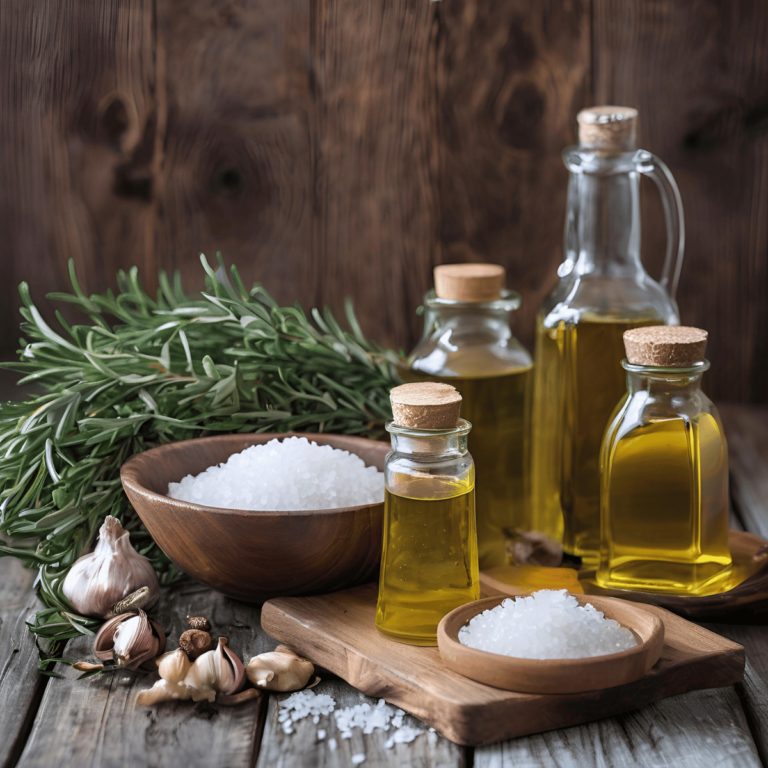
The Best Home Remedies for Ear Infection While Pregnant
The Best Home Remedies for Ear Infection While Pregnant Introduction to Ear Infections During Pregnancy Home remedies for ear infection while pregnant are often sought by expectant mothers dealing with the discomfort of ear pain. Pregnancy can weaken the immune system, making you more vulnerable to ear infections. Hormonal changes and increased blood flow during…

The Best Herbal Medicine Recipes: Natural Healing with Herbs
The Best Herbal Medicine Recipes: Natural Healing with Herbs Rise of Herbal Medicine In this post, we’ll explore herbal medicine recipes that are simple to make and can be used for a variety of common ailments. Whether you’re looking to strengthen your immune system, relieve a sore throat, or treat skin issues, there’s a recipe…

Herbalism for Beginners: Comprehensive and Practical Guide
Herbalism for Beginners: Comprehensive and Practical Guide Herbalism for Beginners In this blog post, I will discuss that herbalism for beginners can be a wonderful way to explore the healing power of nature. Herbalism is the practice of using plants for medicinal purposes, and it has been around for centuries. In ancient times, people relied…


